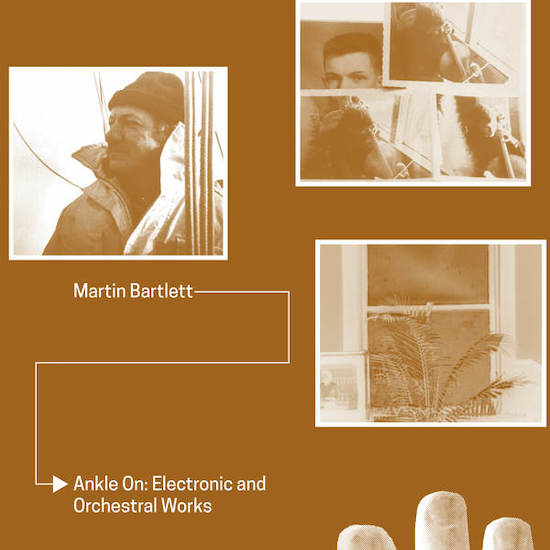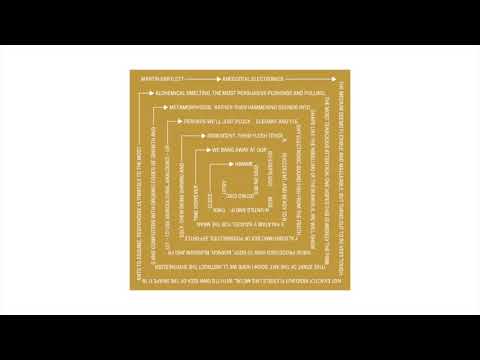If feels like every year there is a ‘new’ cult hero whose work we all need to know about. The majority of these artists are already known, with their music already available. These retrospectives feel masturbatory but British/Canadian electronic pioneer Martin Bartlett’s feels justified and warranted. Born in Croydon in 1939 Bartlett was adopted as an infant and immigrated to Canada. After a spell in the navy and studying music composition at college he founded the Western Front, a cultural cooperative, gallery and performance space. After a career as an academic and musical trailblazer, he sadly died in 1993 aged 54 due to AIDS-related causes. Arc Light Editions has now issued two retrospectives on Bartlett’s work. Anecdotal Electronics: Live Experiments & Other Recordings and Ankle On: Electronic & Orchestral Works.
Bartlett’s grasp of not only what a synth was, but could be was ground breaking. There is a story about a performance where he made a curry from scratch and connected his homemade synth to it. Whilst it was cooking he read from books about food and food science. The performance ended when the curry was cooked, which he then shared. This was his brilliance.
The recordings on Anecdotal Electronics: Live Experiments & Other Recordings are crammed full of whimsy and wonder. It is the sound of a man experimenting as he goes and you can almost see the smile on his face, or a perplexed looked after altering a knob an getting something that he wasn’t expecting. The songs range from jaunty workouts ‘Muscle Music (Edit)’, full on freak-outs ‘Time Passing X (Edit)’ and the songs that showcase his philosophical leanings ‘More Lines from Chuang Tzu (Edit)’ and ‘Electronic Recalcitrant’. It’s the latter that really feel fresh and exciting. ‘Three Songs’ is the standout track on the album, as not only tells the story of how Bartlett built and designed his own synths, but the music is lyrical, playful with an abrasive element that is hard to ignore.
Ankle On: Electronic & Orchestral Works is the stronger of the two releases. The four songs contained feel more cohesive and thought out, rather than just experimentations and jams. The standout track is the fifteen minute ‘Raga’. It feels like a proto acid techno track, but beatless. Bartlett creates a wall of squeaks, squeals and tweaks, underpinned by hypnotic melodies and complex rhythms. It sounds incredibly fresh but totally of its time. There is also a hint of what is to come. But this is what Bartlett did best. By showing us how this new technology could, and would, be used he opened up unlimited possibilities for experimentation. He wasn’t satisfied to use synths in the background; he wanted them to be our sole focus of attention. Rick Wakeman in a larme cape this is not.
What these recordings show is a musician, and philosopher, who was ahead of his time. Sadly he died at a time when electronic music was starting to get recognition as a serious art form, not just a fad, and this might be the reason why Bartlett isn’t as well-known as his peers. Plus there isn’t a lot of his recordings, but what is available shows in inquisitive mind, with an innate understanding of melody and composition. With these albums we are being given vital recordings that will hopefully shine the spotlight on an underrated and long forgotten composer, producer and pioneer.



